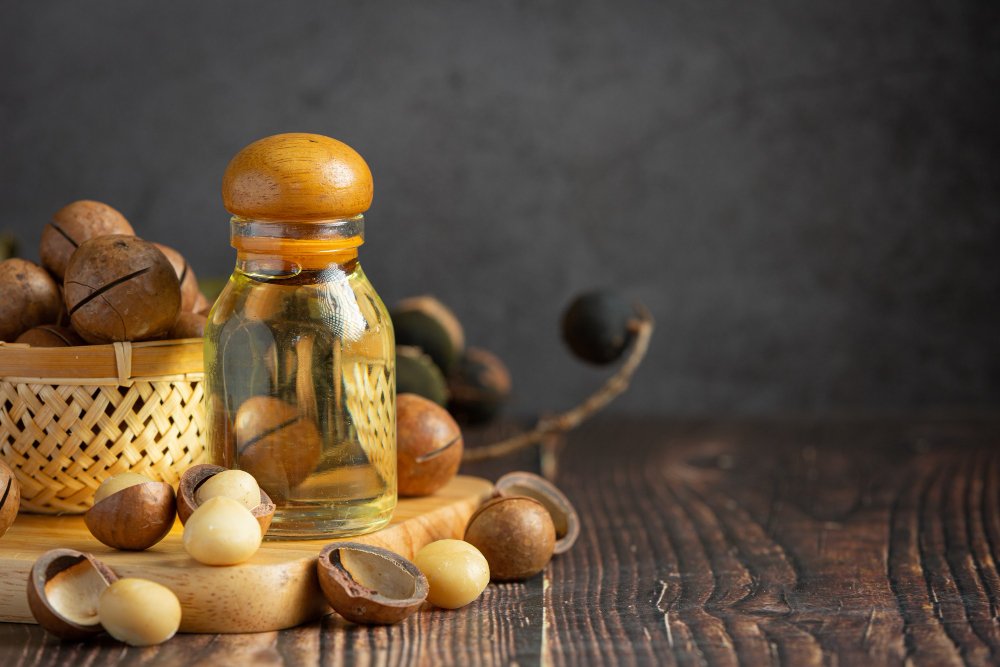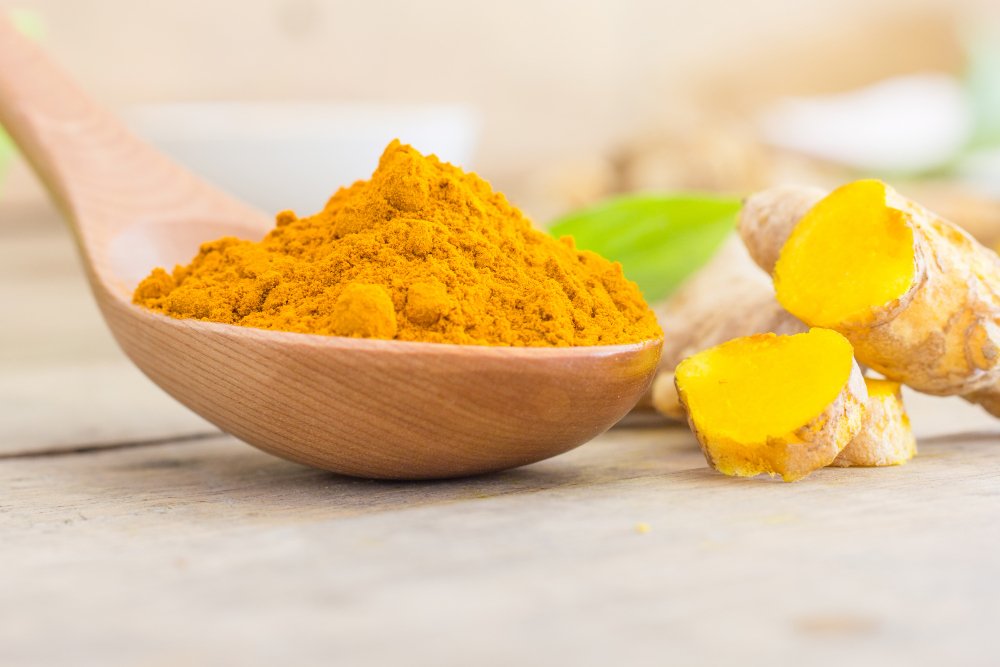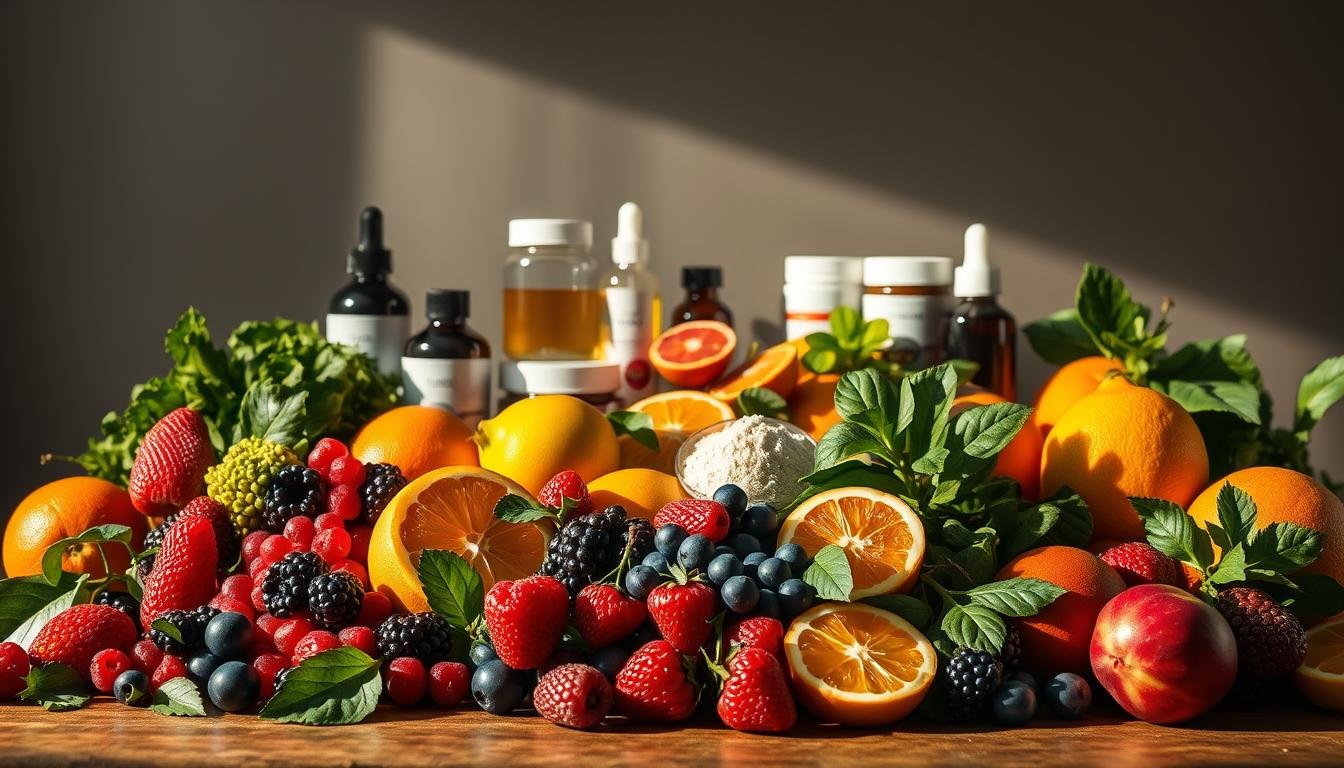Antioxidants are good for us. They fight off harmful substances called free radicals. These can cause problems like cancer and heart disease.
You can find antioxidants in many foods. Fruits, vegetables, nuts, and whole grains are all good sources. This article will look at the benefits of antioxidants and where to find them.
Eating a variety of these foods can boost your health. It’s a simple way to take care of yourself.
Understanding Antioxidants
Antioxidants are good for us because they fight off harmful substances called free radicals. These free radicals can cause diseases like cancer and heart problems. You can find antioxidants in foods like fruits, vegetables, nuts, and whole grains.
This article will talk about the benefits of antioxidants, where to find them, and how they help our health. Eating a variety of these foods is an easy way to boost your well-being.
Understanding Antioxidants
Antioxidants protect us by fighting off free radicals. These free radicals can cause damage and lead to diseases. Foods like fruits and vegetables are full of antioxidants.
They contain vitamins C and E, beta-carotene, and flavonoids like lycopene. Eating colorful foods like berries, nuts, and leafy greens boosts our antioxidant levels. This supports our overall health.
Some foods can be made even better with special coatings. These coatings help keep the antioxidants in the food. While supplements are out there, whole foods are better for preventing diseases.
Choosing foods like coffee and whole grains can increase our antioxidant levels. This can help us stay healthy and lower the risk of chronic diseases.
Benefits of Antioxidants for Overall Health
Role in Reducing Oxidative Stress
Antioxidants fight off free radicals in our bodies. They do this by donating electrons and breaking down harmful compounds. This reduces oxidative stress.
Foods like berries, nuts, and vegetables are full of antioxidants. They include vitamin C, vitamin E, and flavonoids. These help our bodies manage oxidative damage.
For example, ascorbic acid in citrus fruits and tocopherols in almonds can lower oxidative stress markers. This protects us from diseases like cancer and heart disease. A diet rich in these foods also improves lung function and reduces cell damage.
Natural antioxidants like beta-carotene and lycopene in carrots and tomatoes have protective properties. Technology like encapsulation in edible films can make these phytochemicals more effective.
Support for Immune Function
Antioxidants like vitamin C, vitamin E, beta-carotene, and flavonoids boost our immune system. They fight off free radicals and reduce oxidative stress. Foods like berries, citrus fruits, nuts, and vegetables are full of these antioxidants.
They strengthen our body’s defense against diseases like cancer and heart disease. Ascorbic acid in fruits and tocopherols in nuts boost immunity and protect lung function. Eating a variety of fruits and vegetables, like those rich in carotenoids, can improve antioxidant activity.
Drinking coffee and eating certain berries can also increase our antioxidant levels. Without enough antioxidants, we may face high oxidative stress. This can lead to chronic conditions and a weakened immune system. Natural antioxidants in whole foods are more effective than synthetic ones.
Benefits of Antioxidants in Disease Prevention
Cardiovascular Health
Antioxidants protect our heart health by fighting off free radicals. This reduces oxidative stress and lowers the risk of heart disease. Foods like fruits and vegetables are rich in antioxidants.
Berries, nuts, and tomatoes contain flavonoids and lycopene, which are powerful antioxidants. A diet full of these foods can reduce lipid peroxidation effects. This improves serum levels of antioxidants like glutathione and tocopherols.
These compounds prevent inflammation and support lung function, which is key for heart health. Edible films and coatings with antioxidant compounds can also enhance food preservation. This makes these nutrients more accessible. While supplements exist, whole foods are better for preventing diseases.
Eating a variety of antioxidant-rich foods promotes nutritional health. It helps address oxidative stress. This can lower the risk of chronic conditions like heart disease and cancer.
Cancer Resistance
Antioxidants fight free radicals, which can cause diseases like cancer and heart disease. Eating fruits and vegetables boosts antioxidant levels. They contain compounds like flavonoids and ascorbic acid.
These compounds, found in foods like carrots and tomatoes, help reduce oxidative stress. They also improve lung function and support health.
Vitamin C and vitamin E help the body fight cancer. Foods like nuts and colorful vegetables are good sources. Research shows they can lower the risk of chronic diseases.
While some consider supplements, natural sources are safer and more effective. Edible films for food preservation are a good example.
Neurodegenerative Disease Protection
Antioxidants protect the brain from diseases like Alzheimer’s and Parkinson’s. They reduce oxidative stress caused by free radicals. Vitamins E and C, and carotenoids like beta-carotene, have strong protective properties.
Eating a variety of fruits and vegetables boosts brain health. Berries, citrus, and leafy greens are good choices. Nuts and coffee also contribute to antioxidant levels.
Natural antioxidants from whole foods are more effective than synthetic ones. Techniques like encapsulation improve their absorption. This helps fight oxidative stress better.
Top Sources of Antioxidants
Fruits and Vegetables
Berries are full of antioxidants like vitamin C and flavonoids. Tomatoes and carrots are rich in lycopene and beta-carotene. Adding these to meals boosts health and prevents diseases.
Steaming or lightly cooking increases antioxidant absorption. Nuts and whole grains also have natural antioxidants. Coffee is a source of polyphenols. While some take supplements, natural sources are better.
Using food-based antioxidants, like edible films, is the best way to support health. It minimizes oxidative stress from free radicals.
Nuts and Seeds
Nuts and seeds are full of antioxidants like vitamin E and flavonoids. They protect cells from free radicals. Regularly eating them boosts health and lowers disease risk.
They are rich in compounds like ascorbic acid and beta-carotene. This helps prevent heart disease and cancer. Encapsulation technology in food aims to enhance their effectiveness.
Herbs and Spices
Herbs like oregano, thyme, and cinnamon are packed with antioxidants. They help fight free radicals and reduce oxidative stress. This can lower the risk of chronic diseases like cancer and heart disease.
Adding these herbs and spices to your meals is easy. You can put fresh herbs in salads or use spices in cooking. For example, turmeric in curries or cinnamon on oatmeal boosts your antioxidant intake.
Herbs and spices also support lung health and improve vitamin levels. They add flavor and nutrition to your dishes.
Phytochemicals in herbs like coffee and berries are good for preventing diseases. Edible films with encapsulation technology can make these antioxidants more effective in food.
Electronic Supplementary Material
Electronic Supplementary Material has key data on antioxidants. It shows how antioxidants fight free radicals and oxidative stress. It includes tables and figures on ascorbic acid, vitamin E, and flavonoids.
This material helps understand how natural antioxidants in foods prevent diseases. It’s available online for researchers to review. It shows how phytochemicals like tocopherols and phenolic acids work.
Technology like encapsulation and edible films is also explored. They help safely add synthetic antioxidants to food and cosmetics. This material is important for validating research and expanding knowledge on antioxidants.
Tips for Increasing Antioxidant Intake
1. Incorporate a Variety of Colors in Meals
Adding different colors to meals makes them more appealing and nutritious. Each color group has unique antioxidants. These help fight free radicals and reduce oxidative stress, leading to better health.
Getting fresh produce or changing from one-color meals can be hard. Meal prepping helps. Using colorful fruits and vegetables in recipes boosts flavor and nutrition.
Edible coatings can keep foods fresh. This ensures they stay vibrant and effective in preventing diseases. Combining beauty with nutrition makes meals more enjoyable and healthy.
2. Choose Whole Foods Over Processed
Whole foods are better for health because they have more antioxidants. Antioxidants in whole foods like fruits and nuts fight free radicals. This reduces oxidative stress and lowers the risk of chronic diseases.
For example, tomatoes improve lung function, and green tea adds polyphenols. Whole foods have phytochemicals like tocopherols and phenolic acids. These are often missing in processed foods.
Using fresh ingredients in cooking is key. Reading labels helps avoid synthetic antioxidants. Trying new recipes with fruits and vegetables adds variety and nutrition.
3. Experiment with Different Herbal Teas
Herbal teas, like green tea and hibiscus, are full of antioxidants. These help fight free radicals in our bodies. This can lower oxidative stress and protect against diseases like cancer and heart disease.
Each tea has its own special qualities. For example, hibiscus is high in vitamin C. Choosing teas with these compounds and preparing them right can boost your health.
Some teas come in packaging with edible films. These films keep the antioxidants fresh. Adding fruits and veggies to your tea can also bring more health benefits.
4. Limit Exposure to Environmental Toxins
Using natural products and choosing organic foods can reduce toxin exposure. Avoiding synthetic antioxidants in food is also key. Local farmers’ markets can help you find healthier options.
High levels of free radicals from pollutants can lower antioxidant activity. Edible films with natural antioxidants can help fight chronic diseases. Environmental agencies and community groups can guide you on safer choices.
Being informed helps lower disease risk and improves nutrition. Antioxidants like beta-carotene from carrots support lung health and overall wellness.
5. Consider Antioxidant Supplements with Caution
Antioxidant supplements should be used with caution. They may not be as effective as whole foods. Supplements contain compounds like vitamin C and polyphenols, but research shows they may not always reduce disease risk.
Foods rich in antioxidants offer more benefits than supplements. They contain phytochemicals that boost health. High levels of synthetic antioxidants can be risky.
Regularly eating antioxidant-rich foods can improve natural antioxidant levels. Supplements may not offer the same benefits. So, it’s best to get antioxidants from a balanced diet.
FAQ
What are antioxidants and how do they benefit our health?
Antioxidants protect cells from damage by free radicals. They help reduce inflammation and lower disease risk. Eating foods like berries, nuts, dark chocolate, and leafy greens boosts antioxidant intake.
How do antioxidants help in preventing chronic diseases?
Antioxidants prevent chronic diseases by fighting free radicals. Eating foods like berries, spinach, and nuts protects against heart disease and cancer. Regular consumption promotes health and reduces disease risk.
What are some common food sources of antioxidants?
Common antioxidant sources include berries, dark chocolate, nuts, green tea, and colorful fruits and veggies. Adding these to your diet increases antioxidant intake.
Can antioxidants improve skin health and slow down aging?
Yes, antioxidants can improve skin health and fight aging. Use vitamin C serums, green tea, and antioxidant-rich foods like berries and nuts. Daily sunscreen also protects against free radical damage.
Is it necessary to take antioxidant supplements, or can I get enough from my diet?
Getting enough antioxidants from food is usually enough. Focus on eating fruits, vegetables, nuts, and dark chocolate. Unless a doctor suggests it, you might not need supplements.





